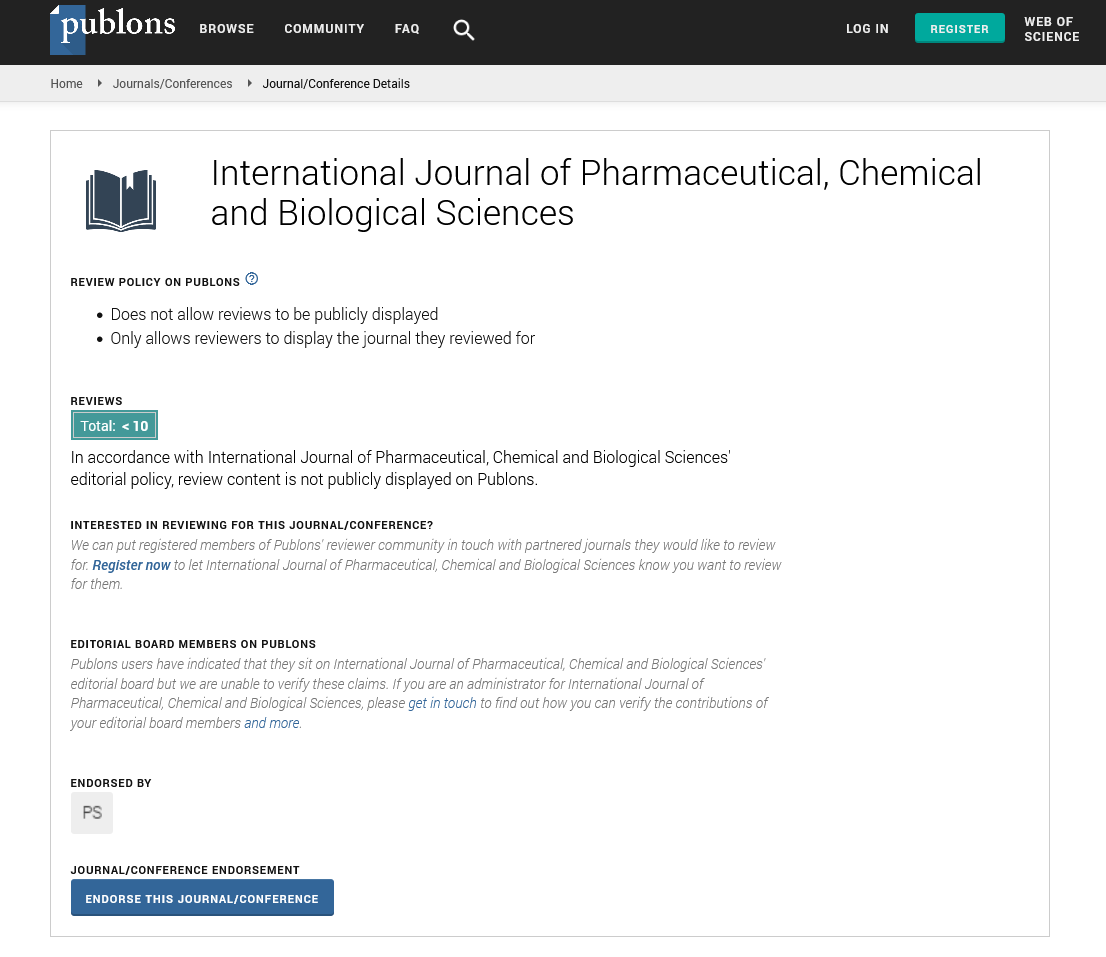Opinion - International Journal of Pharmaceutical, Chemical and Biological Sciences ( 2024) Volume 14, Issue 2
Deciphering the Genetic Map: The Importance of Karyotyping in Understanding Human Health
Linda Brown*Linda Brown, Department of Genetics, Edge Hill University, UK,
Received: 29-May-2024, Manuscript No. ijpcbs-24-140252; Editor assigned: 31-May-2024, Pre QC No. ijpcbs-24-140252 (PQ); Reviewed: 14-Jun-2024, QC No. ijpcbs-24-140252; Revised: 19-Jun-2024, Manuscript No. ijpcbs-24-140252 (R); Published: 26-Jun-2024, DOI: DOI: 10.36648/2471-9668-14.2.9
Introduction
In the intricate landscape of genetics, karyotyping stands as a foundational technique, offering invaluable insights into the structure and organization of chromosomes. By visualizing and analyzing an individual’s karyotype the complete set of chromosomes in a cell scientists and clinicians can uncover chromosomal abnormalities that underlie a wide range of genetic disorders. From diagnosing congenital conditions to guiding reproductive decision-making, karyotyping plays a pivotal role in understanding human health and disease. At its core, karyotyping involves the systematic arrangement and examination of chromosomes under a microscope, typically derived from cells obtained from blood, bone marrow, or fetal tissue. By staining chromosomes with specific dyes and capturing their distinct banding patterns, karyotypists can identify individual chromosomes and detect structural and numerical abnormalities with remarkable precision. One of the primary applications of karyotyping is in the diagnosis of chromosomal disorders, such as Down syndrome, Turner syndrome, and Klinefelter syndrome. These conditions are characterized by specific chromosomal abnormalities, such as trisomies (an extra copy of a chromosome) or monosomies (a missing chromosome), which can be readily identified through karyotypic analysis.
Description
Karyotyping plays a crucial role in prenatal screening and diagnosis, allowing for the early detection of chromosomal abnormalities in developing fetuses. Through techniques such as amniocentesis and Chorionic Villus Sampling (CVS), clinicians can collect fetal cells for karyotypic analysis, providing expectant parents with valuable information about the genetic health of their unborn child. This knowledge empowers individuals and couples to make informed decisions about pregnancy management, including the option of prenatal intervention or termination in cases of severe genetic disorders. Furthermore, karyotyping is indispensable in the field of cancer genetics, where chromosomal abnormalities are a hallmark of many malignancies. By analyzing cancer cells’ karyotypes, researchers and oncologists can identify chromosomal rearrangements, deletions, and amplifications that drive tumor initiation, progression, and response to therapy. This information informs treatment strategies, including the selection of targeted therapies and the prediction of patient outcomes, paving the way for personalized cancer care. Despite its utility, karyotyping has some limitations and challenges. Traditional karyotypic analysis requires skilled technicians and specialized equipment, making it time-consuming and resource-intensive. Moreover, certain chromosomal abnormalities may be cryptic or subtle, requiring complementary techniques, such as Fluorescence In Situ Hybridization (FISH) or molecular cytogenetics, for detection and confirmation. Looking ahead, advances in technology, such as high-resolution microarray analysis and Next Generation Sequencing (NGS), are expanding the capabilities of karyotyping and enabling deeper insights into chromosomal structure and function.
Conclusion
In conclusion, karyotyping stands as a cornerstone of modern genetics, offering a window into the intricate architecture of the human genome. From diagnosing genetic disorders to guiding prenatal care and cancer treatment, karyotyping plays a vital role in understanding and managing human health. As we continue to refine and innovate in the field of cytogenetics, the power of karyotyping to unravel the mysteries of the genetic map will only grow, offering hope for improved health outcomes and a deeper understanding of the genetic basis of life.
Acknowledgement
None.
Conflict Of Interest
None.

